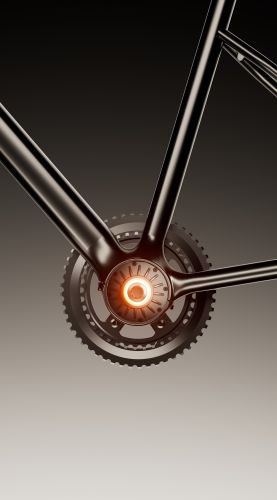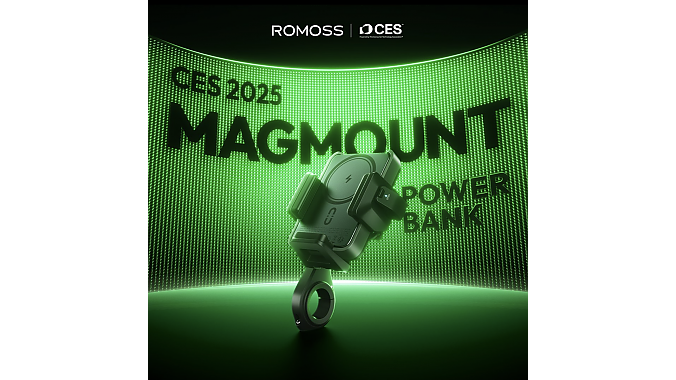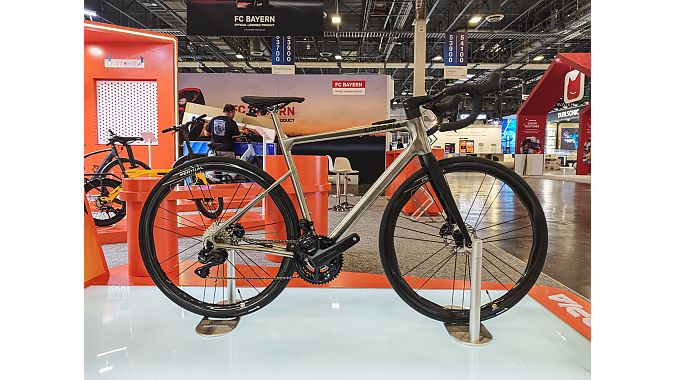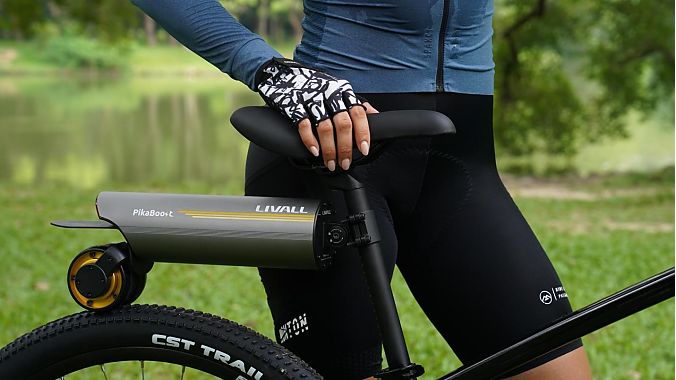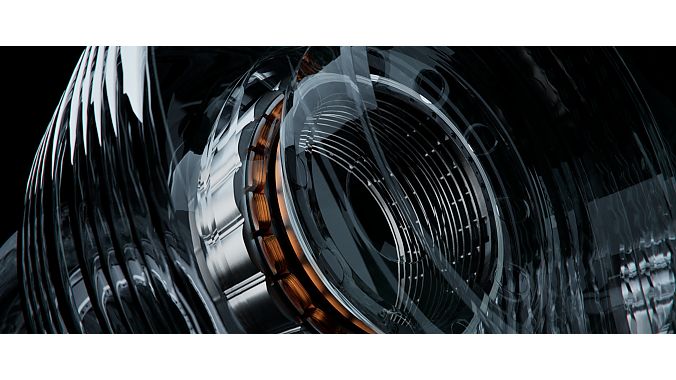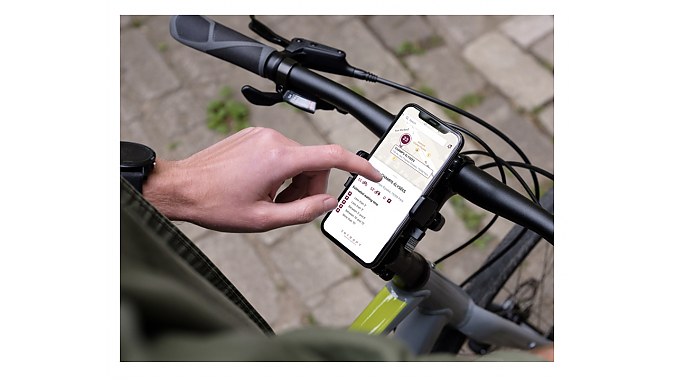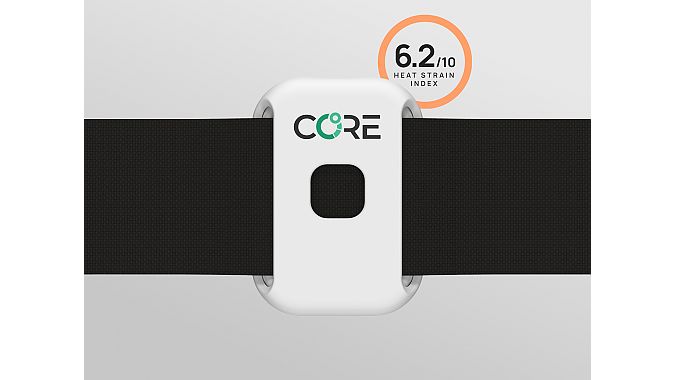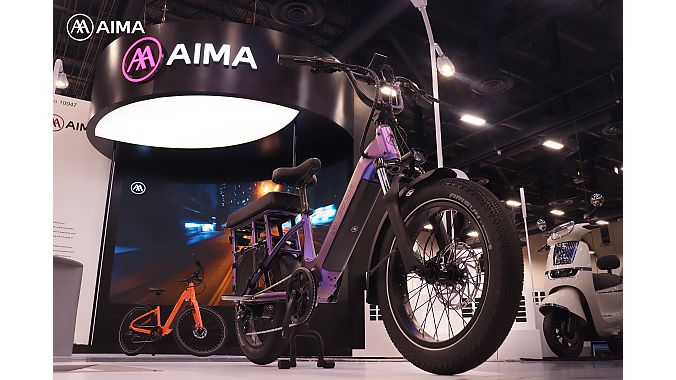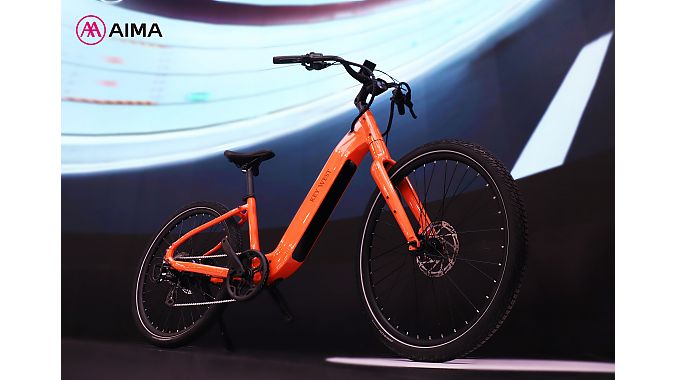LAS VEGAS (BRAIN) — At the CES consumer electronics show in Las Vegas this week, the simple bicycle is often a platform used to demonstrate the latest in high technology, including artificial intelligence, battery and motor technology, fitness devices and more.
A handful of e-bike brands are exhibiting, including AIMA, Biky, Engwe, Himiway, Heybike, Komda, Muon, Vanpowers, Hyper Bicycles and Segway, which is continuing its e-bike launch. Well-known fitness tech brands including Garmin, Withings, and Whoop (and a lot of lesser-known wearable brands) also are there.
It's not exhibiting, but Trek Bicycle is at CES, where it collaborated with AI company AIZIP (LVCC, North Hall - 9217) on a demo, being presented Wednesday, of a bicycle application for AIZIP's Small Language Model Assistant. AIZIP said the demo will be "an experiment with the future of AI-enabled products in the world of biking."

"By integrating agentic AI into bikes, we transform them from simple tools into intelligent ride companions that act as a buddy, coach, and concierge, enhancing every aspect of cycling. Thanks to advances in generative AI and compact hardware, these bikes learn from your preferences and behaviors, enabling personalized route planning, safer rides, real-time coaching, and seamless communication with loved ones, while making cycling more accessible to all," AIZIP said.
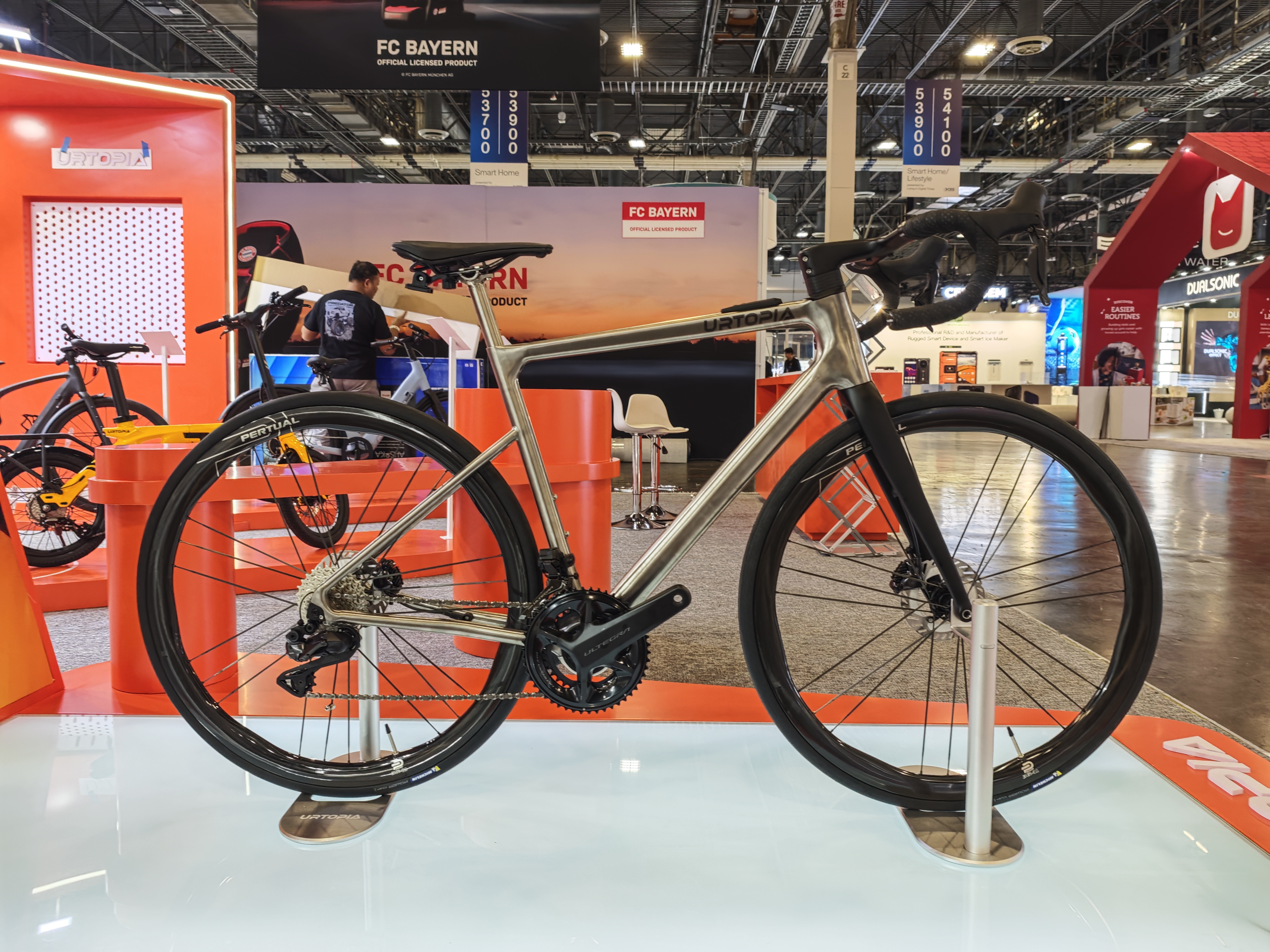
Urtopia (Venetian Expo, Halls A-D - 53852), a Hong Kong company that launched a carbon fiber e-bike with an Indiegogo campaign in 2022, is showing a drop-bar bike with a 3D-printed titanium frame and what it claims is "the world's smallest, lightest, and highest torque-density motor, weighing less than 1,200g, with a max torque of 60 Nm." The bottom bracket-mounted motor weighs less than 2.6 pounds and the complete bike weighs 23.8 pounds. Urtopia said it has more than 300 dealers in the U.S. and a number in Europe. The titanium bike is a concept that may never go into production but Urtopia plans to use the motor on its own models and offer it to other manufacturers.
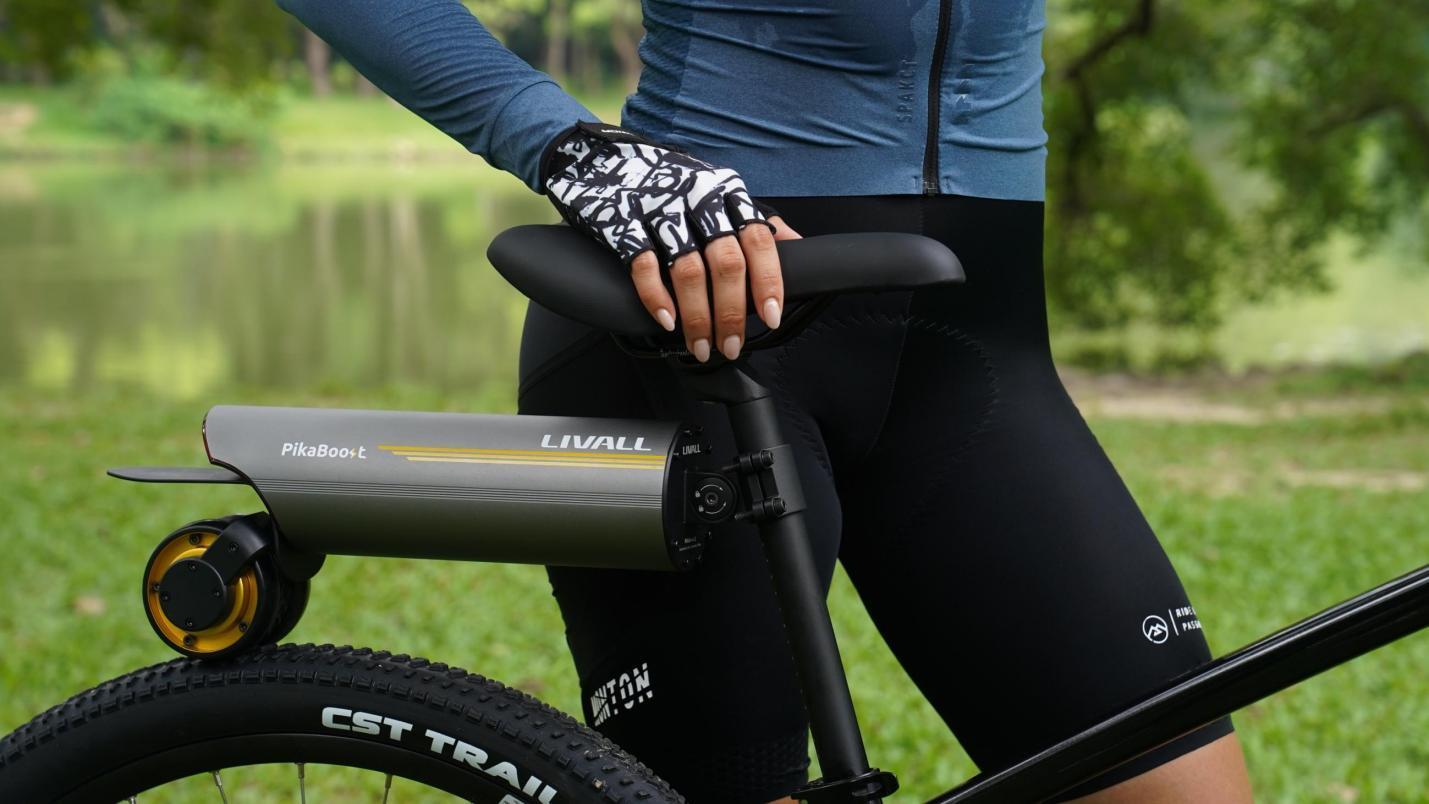 Livall (LVCC, North Hall, Booth 11033), which introduced a cycling smart helmet several years back, is showing the second generation of an e-bike conversion kit at CES — the first iteration was shown in 2022. The PikaBoost 2 (above), a CES Innovation Awards 2025 Honoree in the Sustainability & Energy/Power category, attaches to the seatpost and drives the rear tire. The device integrates a motor with a peak power output of 500W, a swappable lithium-ion battery, regenerative braking and other features into a single unit. The motor has four power modes, an "intelligent e-braking system," real-time fall detection, slip detection, and an integrated LED rear light. A price was unavailable but Livall said at CES it plans to announce a "strategic partnership with a leading global two-wheel vehicle brand."
Livall (LVCC, North Hall, Booth 11033), which introduced a cycling smart helmet several years back, is showing the second generation of an e-bike conversion kit at CES — the first iteration was shown in 2022. The PikaBoost 2 (above), a CES Innovation Awards 2025 Honoree in the Sustainability & Energy/Power category, attaches to the seatpost and drives the rear tire. The device integrates a motor with a peak power output of 500W, a swappable lithium-ion battery, regenerative braking and other features into a single unit. The motor has four power modes, an "intelligent e-braking system," real-time fall detection, slip detection, and an integrated LED rear light. A price was unavailable but Livall said at CES it plans to announce a "strategic partnership with a leading global two-wheel vehicle brand."

Bosch (LVCC, Central Hall - 16203)'s new Battery Lock ensures that an e-bike battery can no longer be used if it is stolen, making it worthless to thieves. When the Battery Lock is activated in the Bosch eBike Flow app, the battery locks automatically when the e-bike is switched off. If a locked battery is inserted into another e-bike with the Bosch smart system, it automatically deactivates its motor support and renders the entire e-bike unusable. The feature is compatible with all batteries or battery combinations in the Bosch smart system. The lock can also be switched off for those who want to share the battery with friends or family, for example. The battery lock will be available this summer and can be installed over-the-air on any Bosch e-bike with the smart system via the eBike Flow app.
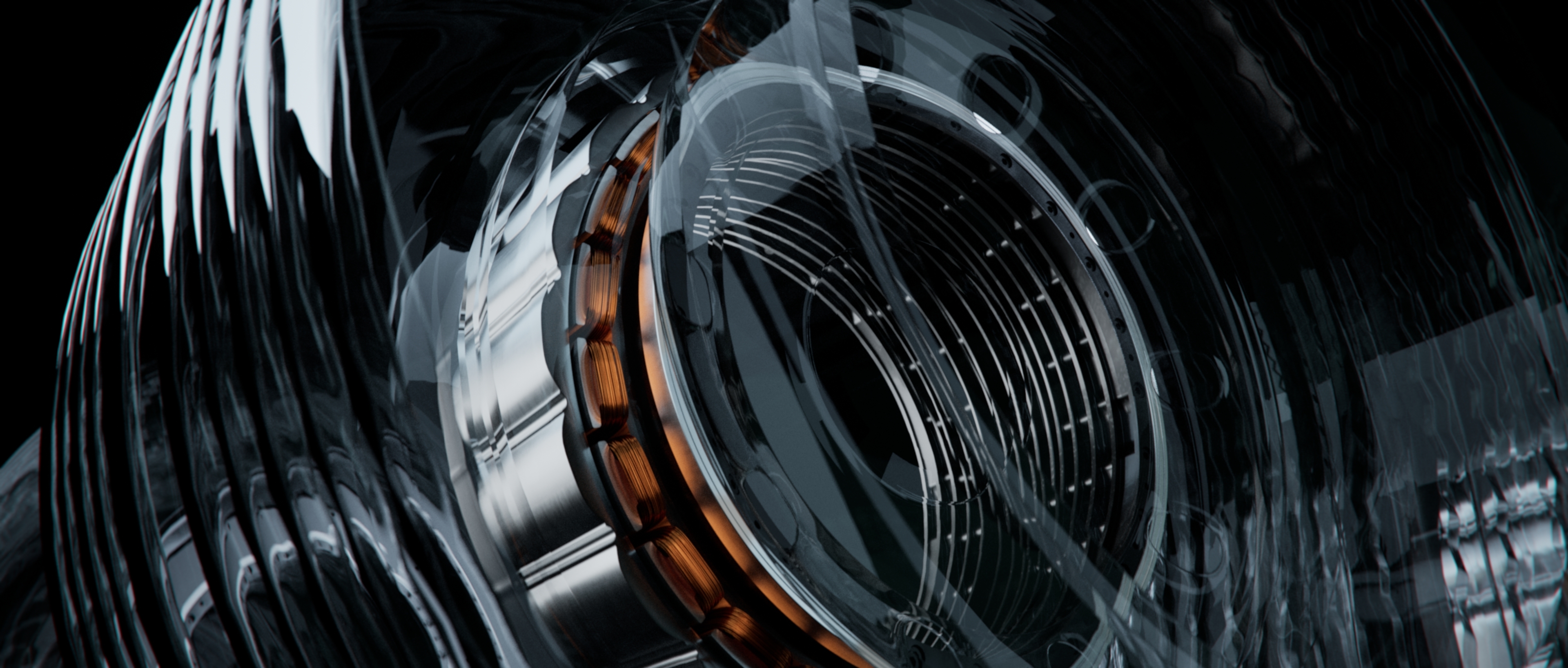
Donut Lab (LVCC, North Hall - 10349), based in Estonia, offers electric motor systems for a variety of applications, including defense, cars, marine, drones, motorcycles, robots and more. Its signature donut motor is placed directly into a vehicle tire, a configuration the company said eliminates the need for power transmission systems, making vehicles lighter, more economical, and easier to manufacture. The placement also reduces unsprung mass. "Great unsprung mass has been the most important reason why everyone hasn't used motors integrated with the tire in their vehicles. Through the torque and power density we've now achieved, the relative weight of the motor is so small that for the first time the unsprung mass is insignificant. For these reasons, we've also invested a lot of time into patenting our inventions, because we believe that these motors will change the whole industry," Marko Lehtimäki, the CEO of Donut Lab, said in a press release.
At CES on Wednesday, Covations Holdings — the parent of United Wheels and this Huffy, Niner, Batch and Buzz Bicycles, and "sister company" of the Allite magnesium materials company — announced a Memorandum of Understanding with Nano and Advanced Materials Institute (NAMI) (Booth #50832-02), a Hong Kong-based R&D center for nanotechnology and advanced materials. Covations said the strategic partnership involves NAMI's advanced battery technology and innovative functional coatings for magnesium alloys with Covation's range of e-mobility products, outdoor product components and applications for consumer electronics. "The partnership with NAMI perfectly aligns with Covation's vision for driving consumer-centric innovation," said Bruno Maier, CEO of United Wheels, in a release. "Covation is the marriage of collaboration and innovation and by leveraging NAMI's expertise in energy storage and material innovation, we're unlocking new opportunities to elevate the consumer experience and inspire adventures worldwide."
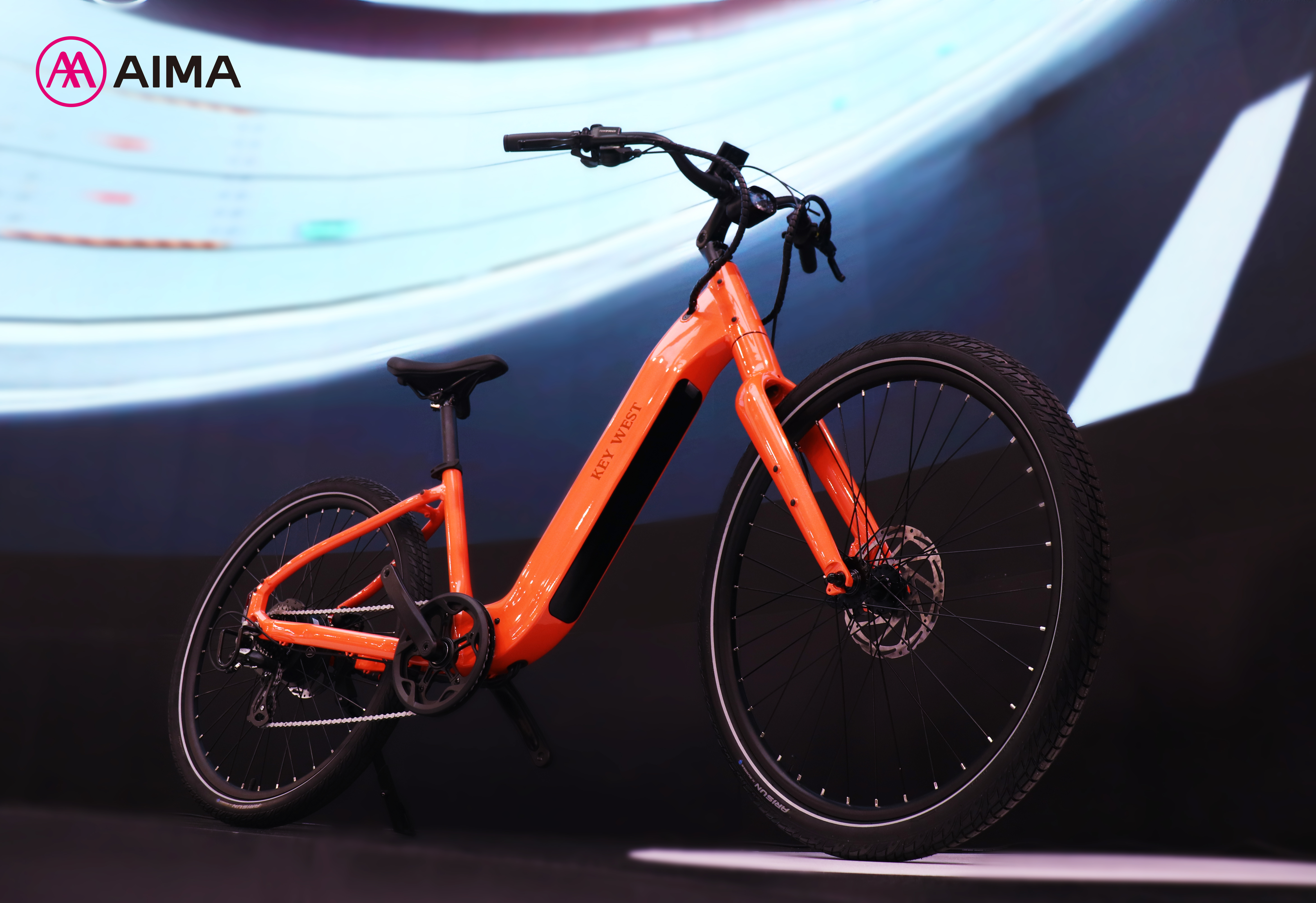 E-bike brand AIMA (Booth 10947) is showing its full 2025 product line in Las Vegas. The company aid the new line is focused on bringing durability and performance to the sub-$2,000 e-bike category. It's also hoping to expand its distribution through bike shops this season. Product highlights include eight new models and three upgraded designs, including an e-MTB, a folder, and several commuter/urban models.
E-bike brand AIMA (Booth 10947) is showing its full 2025 product line in Las Vegas. The company aid the new line is focused on bringing durability and performance to the sub-$2,000 e-bike category. It's also hoping to expand its distribution through bike shops this season. Product highlights include eight new models and three upgraded designs, including an e-MTB, a folder, and several commuter/urban models.
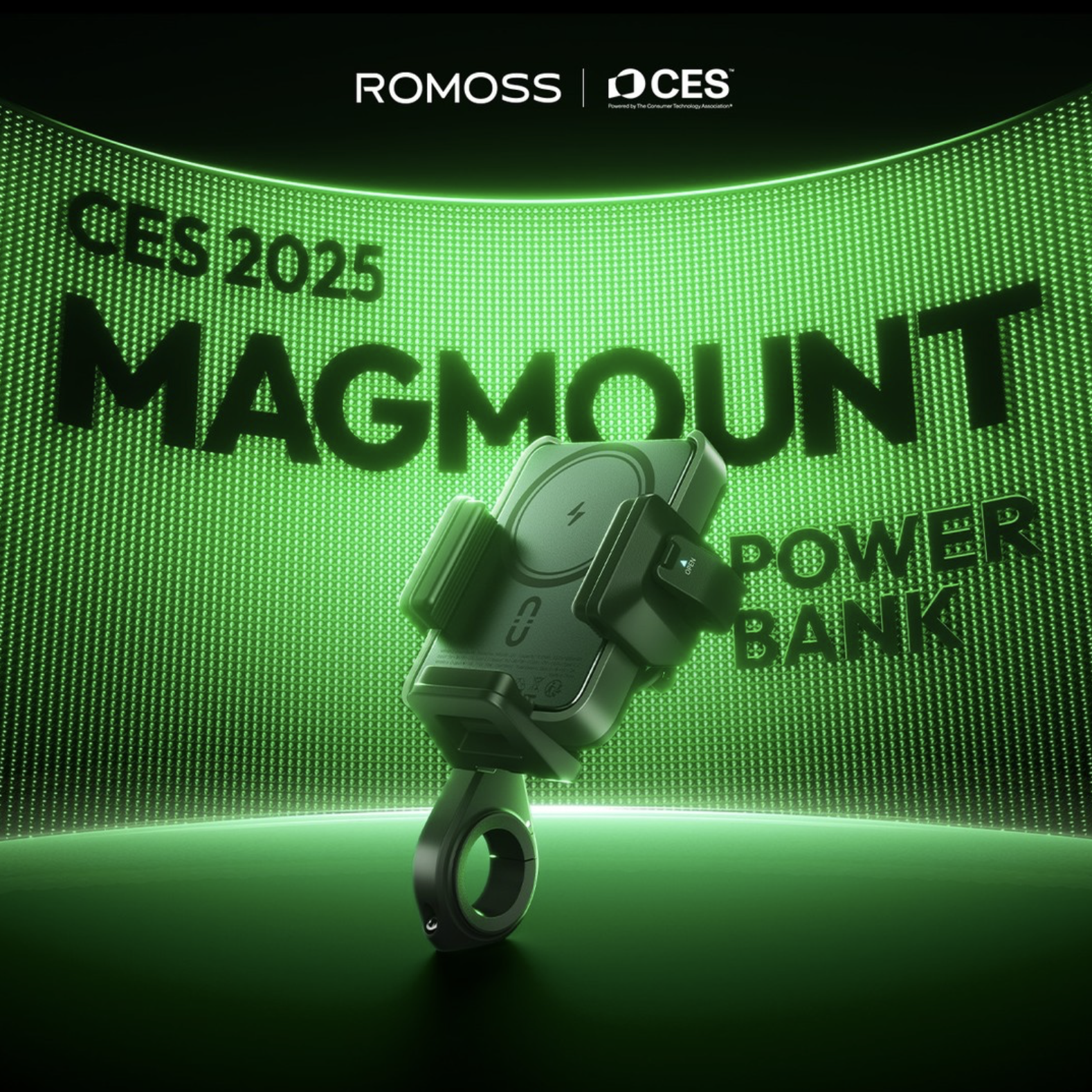 Chinese consumer electronics company Romoss (South Hall 2 - 35900) has a new power bank being marketed to bike riders. The Magmount Power Bank (left) is shockproof and dustproof with an IP66 rating and can attach to a handlebar mount. It can charge lights, bike computers, action cameras and other devices with a 5000mAh capacity and Qi2 15W wireless charging. Romoss said the universal mount supports a range of devices.
Chinese consumer electronics company Romoss (South Hall 2 - 35900) has a new power bank being marketed to bike riders. The Magmount Power Bank (left) is shockproof and dustproof with an IP66 rating and can attach to a handlebar mount. It can charge lights, bike computers, action cameras and other devices with a 5000mAh capacity and Qi2 15W wireless charging. Romoss said the universal mount supports a range of devices.
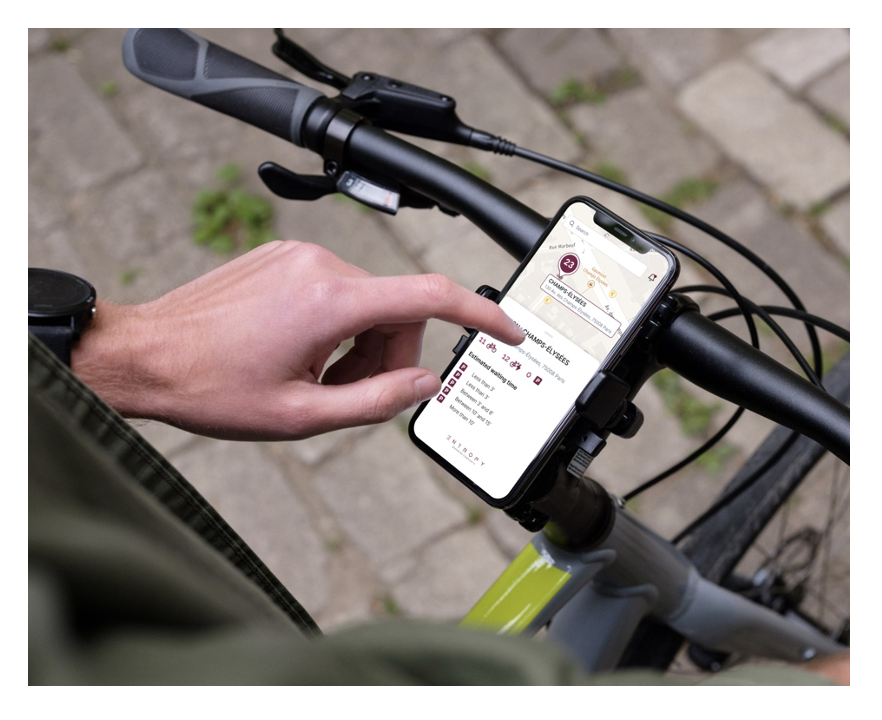
Entropy (Venetian Expo, Hall G - 60615), a French AI company, is promoting Azoth, an AI system with applications for urban mobility systems including bike-share programs. The company says Azoth predicts user demand and needs 24 hours ahead to enable proactive vehicle management. It claims to forecast vehicle and parking space availability within 5 minutes with 98% accuracy and improves operational performance by 92%. "Say goodbye to wasted trips, empty or overcrowded stations. This cutting-edge technology transforms fleet management into an exact science, revolutionizing mobility by making it seamless, cost-effective, and eco-friendly," the company said.
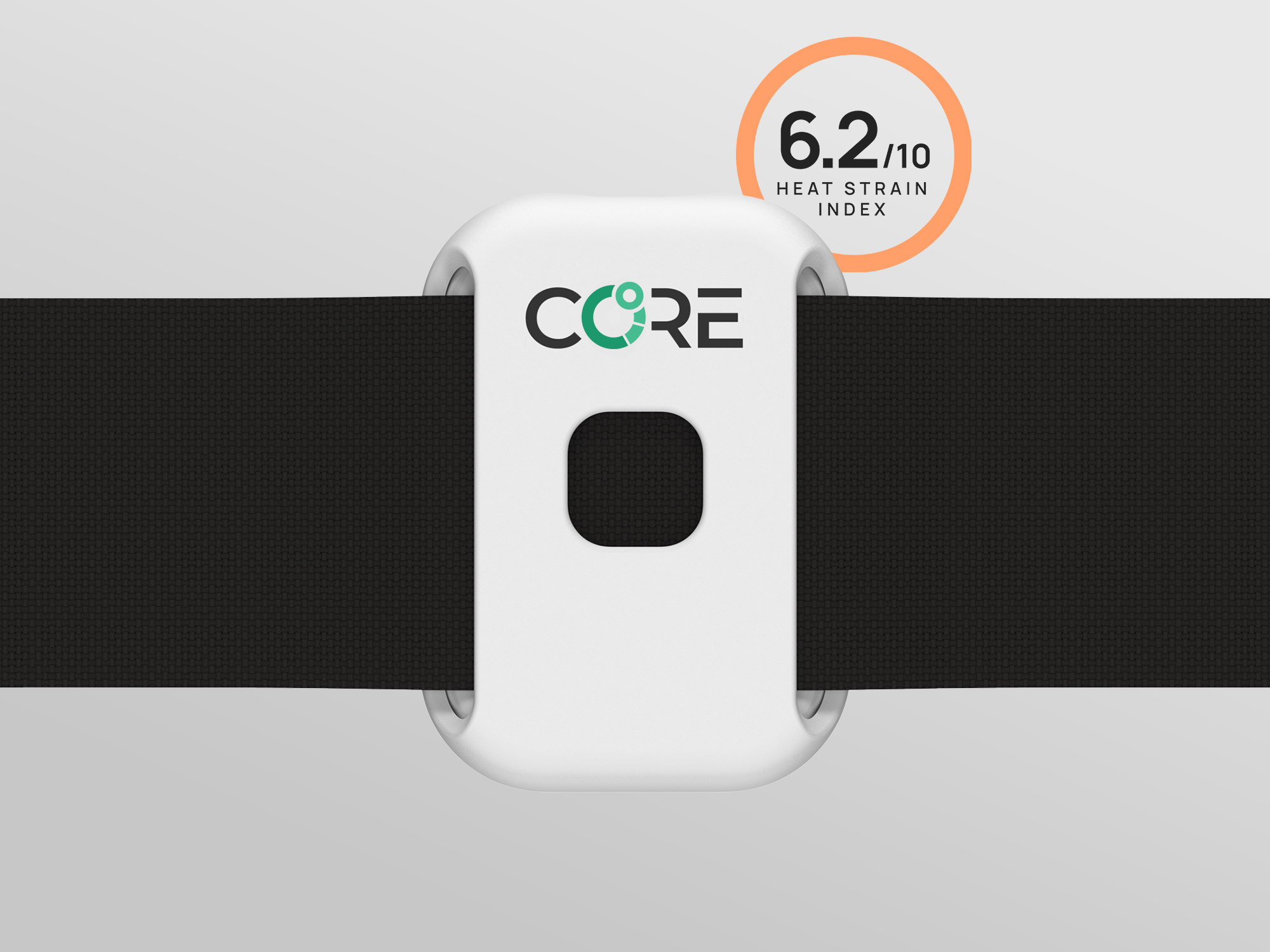 At CES, CORE (Venetian Expo, Halls A-D, 45508) is showing the second generation of its body temperature sensor, the CORE 2. The CORE 2 (left) connects to fitness devices from Garmin, Wahoo and others to show body temperature data in real time. The new version is 48% smaller and 30% lighter than before and a new LED indicator provides visible updates on device status, battery life, and charging progress. Owners of the first-generation CORE are being offered a trade-in program to reduce the price of the newer model.
At CES, CORE (Venetian Expo, Halls A-D, 45508) is showing the second generation of its body temperature sensor, the CORE 2. The CORE 2 (left) connects to fitness devices from Garmin, Wahoo and others to show body temperature data in real time. The new version is 48% smaller and 30% lighter than before and a new LED indicator provides visible updates on device status, battery life, and charging progress. Owners of the first-generation CORE are being offered a trade-in program to reduce the price of the newer model.

